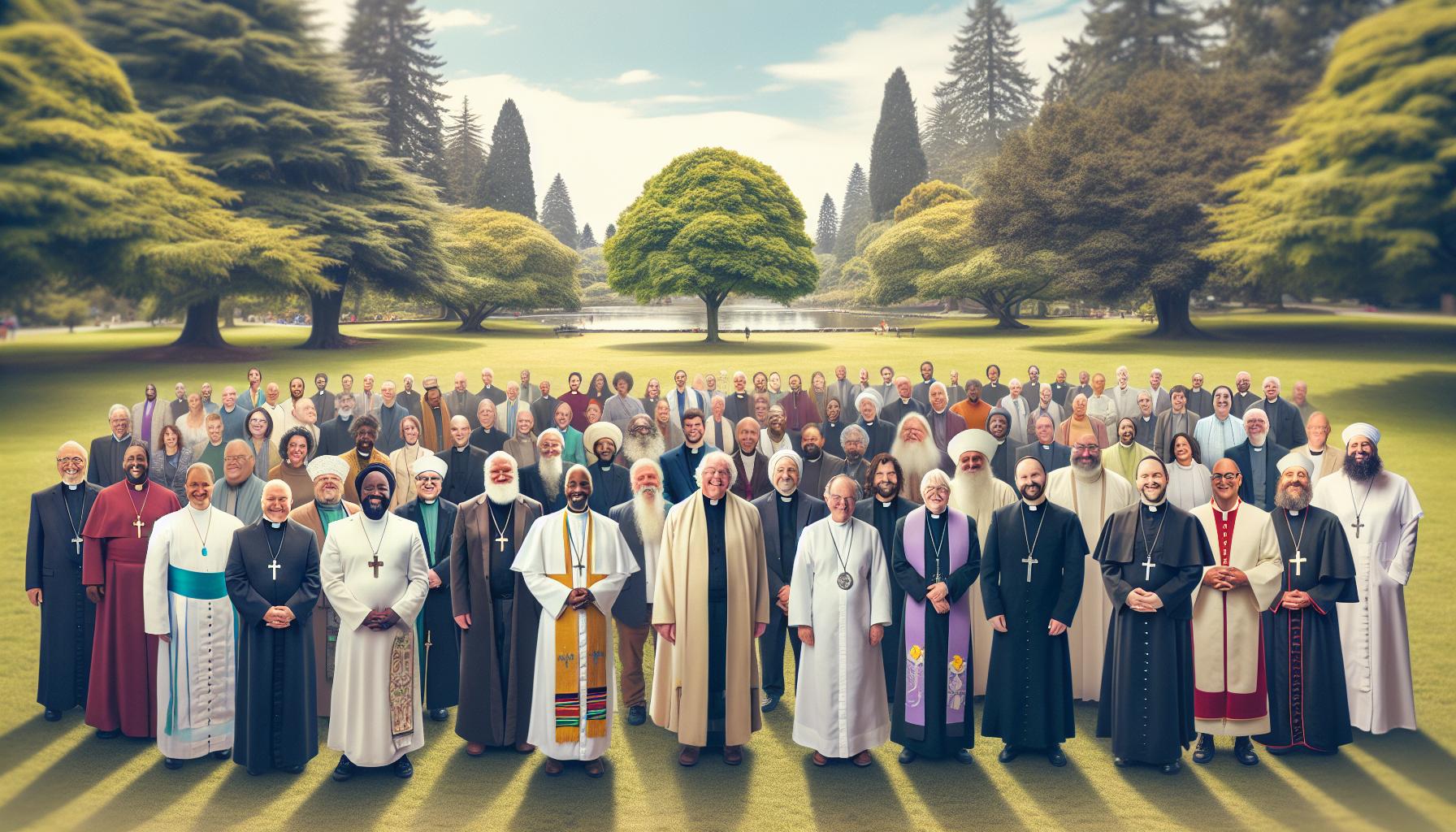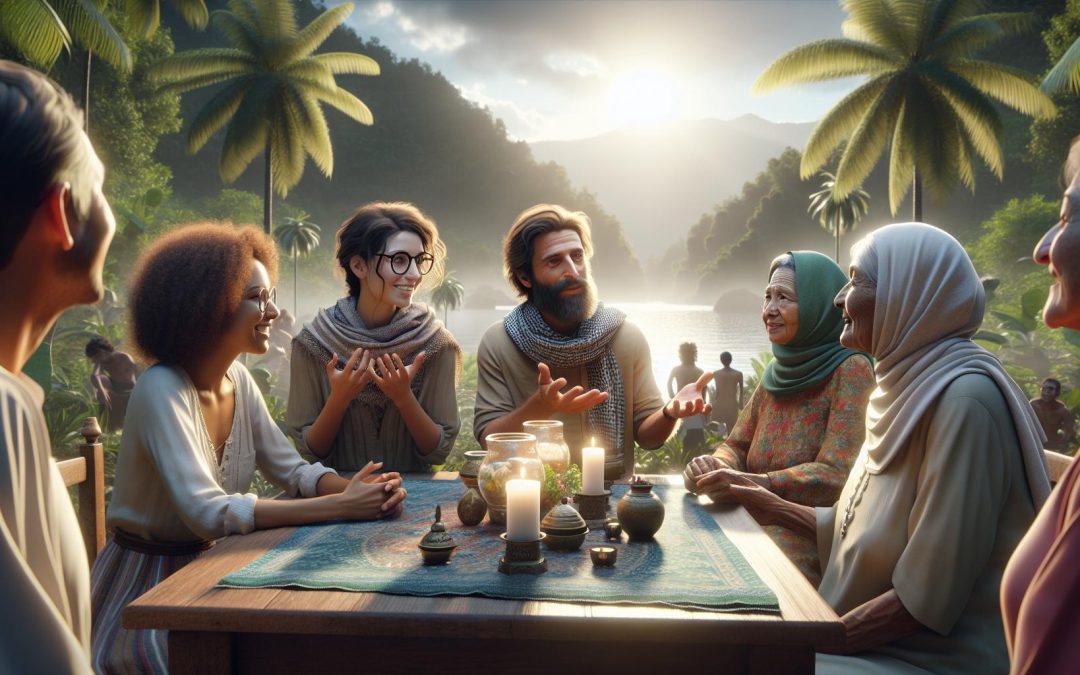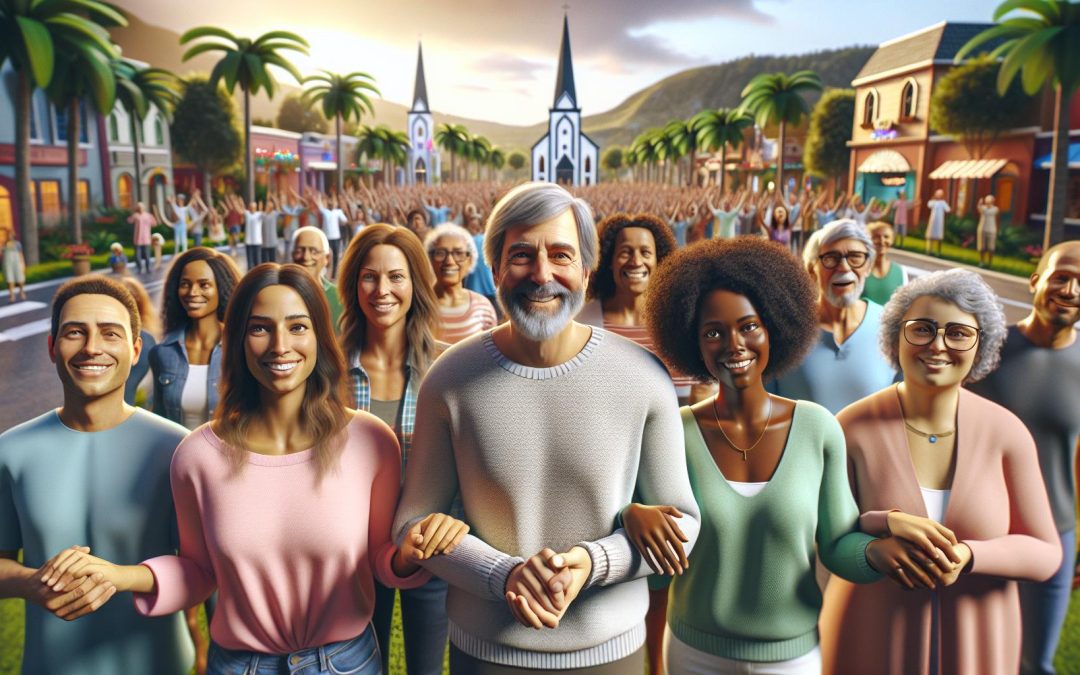Nestled in the heart of the Pacific Northwest, Mercer Island boasts a rich tapestry of history and culture. What often goes unnoticed, though, is the vibrant evolution of its religious leadership. From the early pioneer pastors who laid the spiritual foundations to today’s modern ministers embracing diverse congregations, the island’s religious leaders have played a pivotal role in shaping the community’s identity.
As I explore this fascinating transformation, I can’t help but admire the adaptability and resilience these leaders have shown over the years. They’ve navigated the shifting tides of societal change, always striving to meet the spiritual needs of their congregations. Whether it’s through traditional services or innovative outreach programs, Mercer Island’s ministers continue to inspire and unite their community, reflecting a legacy that’s as dynamic as the island itself.
History Of Mercer Island’s Religious Landscape
Mercer Island’s religious landscape traces back to the late 1800s when the first settlers arrived. In those early days, pioneer pastors served both spiritual and community roles, providing guidance and support to island inhabitants. The establishment of small chapels and gathering spaces highlights the community’s dedication to fostering faith-based connections. I find it fascinating how these early religious leaders laid the groundwork for future growth and diversity.
As Mercer Island’s population grew through the 20th century, so did its spiritual diversity. A variety of denominations found their presence on the island, each contributing unique traditions and practices. Prominent churches, such as St. Monica Catholic Church and Mercer Island Presbyterian Church, gradually became integral parts of the community. These institutions offered residents places for worship and opportunities for social interaction and service.
During the mid-20th century, there was an increase in the construction of religious facilities. The rise of new religious buildings mirrors the evolving expectations and cultural shifts that shaped Mercer Island’s religious character. Synagogues and cultural centers arose as the Jewish community sought to maintain their heritage and faith. Community leaders placed strong emphasis on inclusivity and interfaith dialogue, fostering a harmonious coexistence among varying religious communities.
In recent decades, Mercer Island’s religious landscape has embraced change and diversity more than ever. Many of the island’s congregations have adopted innovative outreach methods to connect with both regular attendees and newcomers. These modern ministers lead programs that address social issues and global concerns, appealing to individuals seeking both spiritual growth and community involvement.
By integrating traditional values with contemporary practices, Mercer Island’s faith leaders have continued to play vital roles in the community’s development. Their adaptability ensures they meet the needs of a changing population while honoring the island’s pioneer roots. As a resident, I’ve witnessed the commitment of these leaders firsthand, and I admire their capacity to inspire and unite people across different backgrounds and beliefs.
Pioneer Pastors: The Early Days
Late 1800s saw Mercer Island attracting settlers drawn by its natural beauty and prospects. Amidst this, pioneer pastors provided spiritual guidance and community stability in these nascent communities.
Founding Congregations
Early congregations, like the First Congregational Church, laid the groundwork for Mercer Island’s spiritual development. Pastors built small chapels serving as places of worship and community gathering. These religious centers offered solace and fellowship to settlers facing isolation.
The arrival of pioneer pastors like Reverend Smith brought structure to spiritual life. They often traveled on foot or horseback to reach scattered communities, ensuring regular religious services. These pastors worked tirelessly, not just delivering sermons but organizing Sunday schools and community events.
Many congregations grew from humble beginnings. For instance, the modest gatherings in makeshift spaces often evolved into more established churches as the population increased. The foundations set by these early leaders formed the spiritual backbone of Mercer Island, fostering a culture of faith that shaped future growth.
Community Challenges And Triumphs
Pioneer pastors faced numerous challenges. Limited resources and rugged terrain tested their resolve. Despite these, their dedication ensured the survival of Mercer Island’s early religious structures.
Conflict occasionally arose among settlers over theological differences. However, pastors played pivotal roles in mediating such disputes, promoting unity over division. Community events organized by churches helped bridge these divides by encouraging social interaction beyond religious boundaries.
Celebrations marked milestones. Early pastors often led the establishment of schools and outreach programs, contributing to the community’s education and welfare. The resilience shown during times of hardship became a testament to their leadership.
Triumphs included expanding congregations and facilities, reflecting the island’s growing population. By addressing communal needs and fostering inclusion, pioneer pastors ensured the island developed a shared spiritual vision as they steered through the challenges of early settlement life.
Transformation To Modern Ministers
Religious leaders on Mercer Island have evolved significantly, transitioning from their pioneer foundations to become modern ministers. This transformation showcases their commitment to adapting to change while maintaining spiritual integrity.
Adapting To Societal Changes
Religious leaders on Mercer Island skillfully navigate societal changes, balancing time-honored traditions with contemporary realities. As technology advances, these ministers incorporate digital platforms like live-streaming services to reach broader audiences. In response to ecological concerns, many churches adopt sustainable practices within their communities. My observations show that they’re continually integrating social justice themes into sermons, reflecting ongoing shifts in societal values. By addressing pressing global issues, these ministers ensure their congregations remain engaged and relevant in today’s world.
Embracing Diversity And Inclusion
Ministers on Mercer Island embrace diversity, fostering an inclusive environment for all faiths and backgrounds. The island’s congregations often hold interfaith events, promoting unity and understanding among diverse groups. I notice how these leaders prioritize inclusion by welcoming LGBTQ+ members and advocating for gender equality within their places of worship. Initiatives such as multicultural festivals celebrate the rich tapestry of cultural heritage present on the island. These efforts not only strengthen the community but also highlight the commitment of modern ministers to build bridges and cultivate acceptance.
Key Contributions Of Religious Leaders
Mercer Island’s religious leaders have significantly shaped the spiritual landscape, providing unwavering guidance and community support. They’ve played integral roles in nurturing connection and fostering growth across generations.
Spiritual Guidance And Support
Religious leaders on Mercer Island provide vital spiritual guidance through thought-provoking sermons and personal counseling. By interpreting sacred texts and addressing modern challenges, they offer solace and clarity to congregants. Leaders like Reverend Smith, who initiated the tradition of regular services, have long understood the importance of stability in spiritual practice. Modern ministers adapt this approach by incorporating contemporary concerns such as mental health, thereby enhancing the relevance of spiritual teachings. Spiritual retreats and meditation sessions foster an environment that supports individuals’ journeys, encouraging both personal growth and collective wisdom. This holistic approach ensures people feel connected and valued within their religious communities.
Community Outreach And Impact
Mercer Island’s religious leaders make a substantial impact on the broader community through diverse outreach initiatives. They organize food drives, clothing donations, and volunteer services, addressing local needs and promoting social responsibility. Collaborations with community groups extend their reach, tackling issues like homelessness and hunger. Innovative programs such as youth mentorship and educational workshops exemplify their commitment to fostering a forward-thinking, inclusive environment. Interfaith activities, including dialogue series and shared community events, encourage unity and understanding among different beliefs. These initiatives showcase the leaders’ dedication to creating a harmonious society where every individual can thrive. Through these efforts, they’ve strengthened the island’s communal fabric, nurturing a sense of shared purpose and resilience.
Challenges Facing Contemporary Ministers
Contemporary ministers on Mercer Island face diverse challenges as they lead their congregations. These challenges require a delicate balance of tradition and modernity to effectively serve their communities.
Navigating Technological Advancements
Adapting to rapid tech evolution forms a core challenge for today’s ministers. Digital communication tools help reach broader audiences, enhancing engagement and community-building. Social media platforms like Facebook and Instagram offer opportunities for sharing uplifting messages and event details, fostering virtual fellowship. Churches and synagogues integrate livestream services to connect with those unable to attend in person, expanding accessibility. Embracing new technologies brings opportunities but requires continuous learning and adaptation, keeping leaders on their toes to ensure meaningful virtual interactions. Security concerns also arise, necessitating robust online safeguarding to protect congregational privacy.
Addressing Congregational Needs
Ministers strive to meet diverse congregational needs, balancing spiritual guidance with tangible community support. Members demand responsive leadership that reflects evolving social values; hence ministers focus on inclusivity and equality, creating open spaces for discussions on vital issues like mental health and social justice. Programs like support groups and volunteer initiatives address personal and communal challenges, enhancing the church’s role as more than just a place of worship. Customizing worship services to resonate with multicultural congregations fosters inclusivity and fills spiritual and cultural gaps. This responsiveness not only builds strong connections but also honors the island’s diverse heritage.
The Future Of Mercer Island’s Religious Leadership
Looking ahead, Mercer Island’s religious leaders stand at the forefront of crucial changes in spiritual guidance, necessitated by technological, cultural, and societal shifts. Envisioning a future that embraces innovation, these leaders are poised to redefine traditional concepts of worship and community engagement. Emerging technologies, such as virtual reality and artificial intelligence, offer new possibilities for reaching congregants in unprecedented ways.
Religious institutions on Mercer Island are increasingly leveraging digital tools to cater to a tech-savvy population. I see potential in integrating virtual meeting platforms, allowing congregants to attend services and participate in community events from anywhere in the world. This shift not only strengthens existing bonds but also broadens the reach of Mercer Island’s religious messages to global audiences.
Another key aspect of future leadership involves environmental stewardship. With climate change being a pressing concern, faith leaders on Mercer Island are championing sustainable practices and eco-friendly initiatives. Many churches plan to incorporate sustainable building practices, host workshops on environmental awareness, and engage in community-wide recycling efforts. This aligns spiritual teachings with actionable strategies that promote environmental conservation and moral responsibility.
The evolving cultural landscape also demands an emphasis on inclusivity and diversity. I expect religious leaders to continue advocating for social justice, striving to create spaces where all individuals feel valued and heard. Initiatives focusing on racial equality, gender inclusivity, and mental health awareness will likely expand, reinforcing the commitment to social equity and community solidarity.
Furthermore, interfaith collaboration remains a pillar of Mercer Island’s religious future. By hosting joint celebrations and dialogues, leaders foster mutual understanding and respect among different faith traditions. This collaborative spirit not only enriches community life but also prepares leaders to face shared challenges with unified efforts.
Overall, the future of Mercer Island’s religious leadership appears vibrant and dynamic. By embracing technological advancements, championing environmental sustainability, and promoting inclusivity, these leaders are well-equipped to meet the evolving needs of their congregations while maintaining core faith values. This adaptability ensures that Mercer Island’s spiritual community continues to thrive in an ever-changing world.
Conclusion
Reflecting on Mercer Island’s journey from its pioneer pastors to today’s modern ministers fills me with admiration for the adaptability and resilience of these leaders. They’ve managed to honor their roots while embracing the future, skillfully navigating societal changes and technological advancements. Their commitment to inclusivity and community support is truly inspiring, fostering an environment where everyone feels valued and heard.
As we look to the future, I’m confident that Mercer Island’s religious leaders will continue to thrive, leveraging new technologies and sustainable practices to meet the evolving needs of their congregations. Their dedication to social justice and interfaith collaboration promises a vibrant and dynamic spiritual community ready to face the challenges of an ever-changing world.




0 Comments